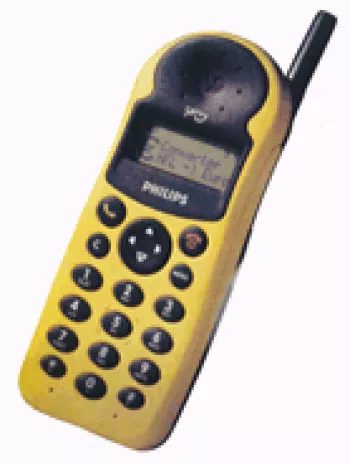
Introduction to Philips 692
The Philips 692 is a feature phone that was launched in January 2008. As a part of the feature phone range, it offers basic mobile phone functionalities with some additional features that cater to users looking for simple, yet efficient mobile devices. Despite being discontinued, it is a notable device within the context of early 2000s mobile technology.
Network and Connectivity
Philips 692 operates on GSM technology with support for 2G bands GSM 900 and 1800. This means that the phone can function on basic mobile networks, though it does not support more advanced cellular technologies like 3G or 4G. With GPRS Class 10, basic internet tasks are feasible, but the absence of EDGE and higher-speed data capabilities limit it primarily to calls and messaging.
Physical Design and Build
The phone has compact dimensions of 104 x 48 x 14.9 mm and weighs just 102 g, making it lightweight and easy to carry around. The use of a Mini-SIM is indicative of earlier phone models. The design is utilitarian, focused on functionality over form, typical of mobile phones from that era.
Display Features
It boasts a 2.4-inch TFT resistive touchscreen capable of displaying 256K colors. With a resolution of 240 x 320 pixels, it offers a ~167 ppi density. While these specs are basic compared to modern smartphones, they were adequate for displaying images and basic applications at the time.
Memory and Storage
Internally, the Philips 692 comes with 11MB of storage, which is quite limited by modern standards. However, it does include a dedicated microSD slot, allowing users to expand storage to accommodate more media files and applications. The phonebook feature with Photocall and the ability to store call records of 30 received, dialed, and missed calls, provided users with essential functionalities needed for communication.
Camera Capabilities
Equipped with a 1.3 MP main camera, the Philips 692 was capable of taking photos and videos sufficient for basic user needs. However, it lacked advanced features such as zoom and high resolution, which are found in current mobile devices. The absence of a front-facing selfie camera is a clear indicator of its era.
Audio and Sound
Audio capabilities include a loudspeaker and support for vibration alerts, downloadable polyphonic, and MP3 ringtones. However, the device lacks a 3.5mm jack, indicating that users needed to rely on wireless or proprietary headphones for private listening.
Communication and Interface
The communications suite includes Bluetooth, allowing for wireless connectivity with compatible devices. However, it lacks WLAN and positioning systems, limiting users' ability to perform advanced connective tasks. Additionally, the inclusion of miniUSB enables basic data transfer and charging capabilities.
Software and Features
As a feature phone, Philips 692 supports SMS, EMS, and MMS messaging, providing a range of ways to communicate via text. A WAP browser is included for basic internet browsing. It supports games and various languages including Chinese Simplified & Traditional and English, making it versatile for different user bases. Java support (MIDP 2.0) facilitates simpler applications which enrich the device's usability.
Battery Specifications
The device includes a removable Li-Ion battery which was common in feature phones, offering the user the ability to replace it when needed. This stands in contrast to modern devices that often use non-removable batteries.
Additional Considerations
The Philips 692 comes solely in black and carries a Specific Absorption Rate (SAR) value of 0.61 W/kg for the head, and 0.36 W/kg for the head in the EU, which remains well within safety standards, ensuring peace of mind for health-conscious users.
Overall, the Philips 692 is a snapshot of mobile technology during the late 2000s. While contemporary smartphones surpass this device in every technical aspect, it remains an example of the practical, robust design that catered to the core communication needs of its time.
Key Features of Philips 692
- Compact dimensions: 104 x 48 x 14.9 mm, lightweight at 102 g
- 2.4-inch TFT resistive touchscreen with 256K colors
- Expandable storage via microSD card slot
- 1.3 MP main camera with video recording capabilities
- Connectivity options include Bluetooth and miniUSB
- Supports SMS, EMS, and MMS messaging
- Java support (MIDP 2.0) for enhanced functionality
- Available language options: Chinese (Simplified & Traditional), English
- Comes in a sleek black color
Disadvantages of Philips 692
- Limited network technology with no EDGE support.
- Discontinued product, meaning no future support or updates.
- Resistive touchscreen, which can be less responsive than capacitive touchscreens.
- Low internal storage capacity of only 11MB.
- Lacks a selfie camera.
- No 3.5mm audio jack for headphones.
- No Wi-Fi connectivity.
- No GPS or positioning features.
- No FM radio support.

View Also
More Phones
All Rights Reserved +14266 Phones © Mobilawy 2025

























